Guinea pigs are a lot more sensitive when it comes to their diet. They are strictly herbivores, so they only eat fruits and vegetables. However, their diet is limited to raw foods, and they are not allowed to eat every type of vegetable, fruit, or herb.
So every pet owner should know the foods that are safe for their guinea pigs.
Can guinea pigs eat peaches? Guinea pigs can eat peaches. However, they can eat peaches only as a treat. It contains high amounts of sugar and can cause health problems to your pet if consumed excessively.
Keep reading the following sections below if you want to know more about health benefits, nutrition facts, and potential risks peaches can have on the guinea pigs.
Table of Content
Are Peaches Good for Guinea Pigs? | Health Benefits
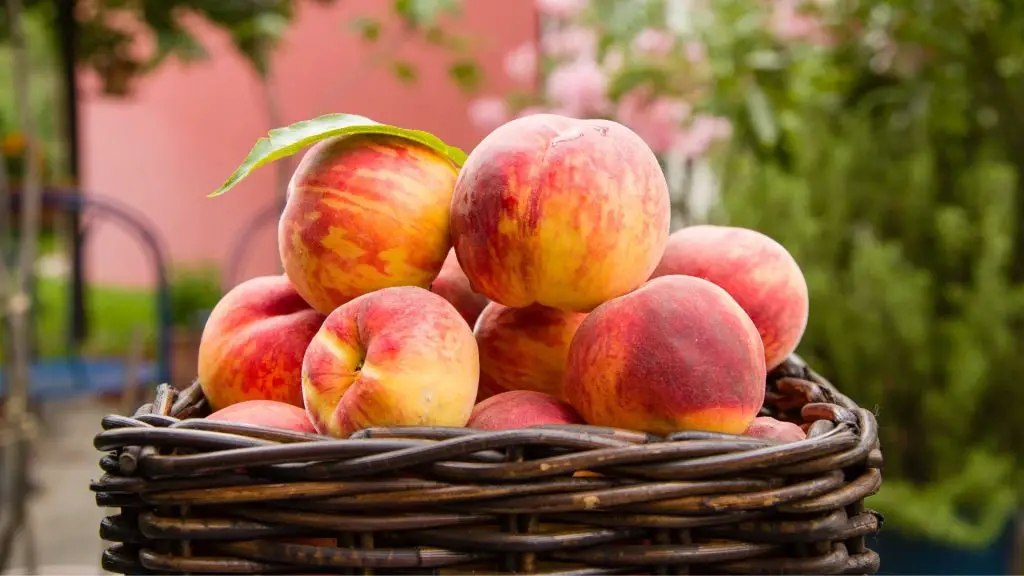
Peaches are good for guinea pigs but should be consumed as an occasional treat. In general, fruits are high in sugar which is not good for guinea pigs if given in large amounts.
The following are some of the health benefits that guinea pigs can achieve from consuming peaches:
Scurvy Prevention
Guinea pigs, just like humans, cannot produce vitamin C. They need to get it from different foods such as peaches, which are a great source of vitamin C and antioxidants. Guinea pigs need about 10 to 30 mg of vitamin C daily; otherwise, they can get very sick (scurvy). Vitamin C is so important to them because it regulates their metabolism, prevents them from getting cold, helps with digestion, etc.
If you accidentally give them a little too much at once, this won’t cause any problems. Guinea pigs cannot produce or store vitamin C, so it will just be eliminated through urine.
Helps Body Function
Peaches have potassium content which is beneficial for guinea pigs. Potassium aids the proper functioning of internal organs such heart, lungs, and kidneys.
Rich in Antioxidants
Antioxidants are incredibly healthy for guinea pigs. They can prevent various diseases, reduce internal inflammation, and slow down the aging process due to free radicals.
There are also certain antioxidants in peaches called caffeic acid and carotenoids. According to studies, these two antioxidants have shown anti-cancer protection and effectiveness.
Healthy Immune System
Because peaches contain vitamin A, they boost the guinea pig’s immune system.
Low in Fat
Low in fat foods are pretty much recommended for most pets in general. Fatty foods cause a higher level of cholesterol higher heart rates, and they can be very damaging in the long run.
Healthy Digestion
Peaches contain fiber that is good for digestion. Consuming enough amount of this macronutrient helps guinea pigs improve bowel movement and prevent constipation.
Nutrition Facts of Peaches
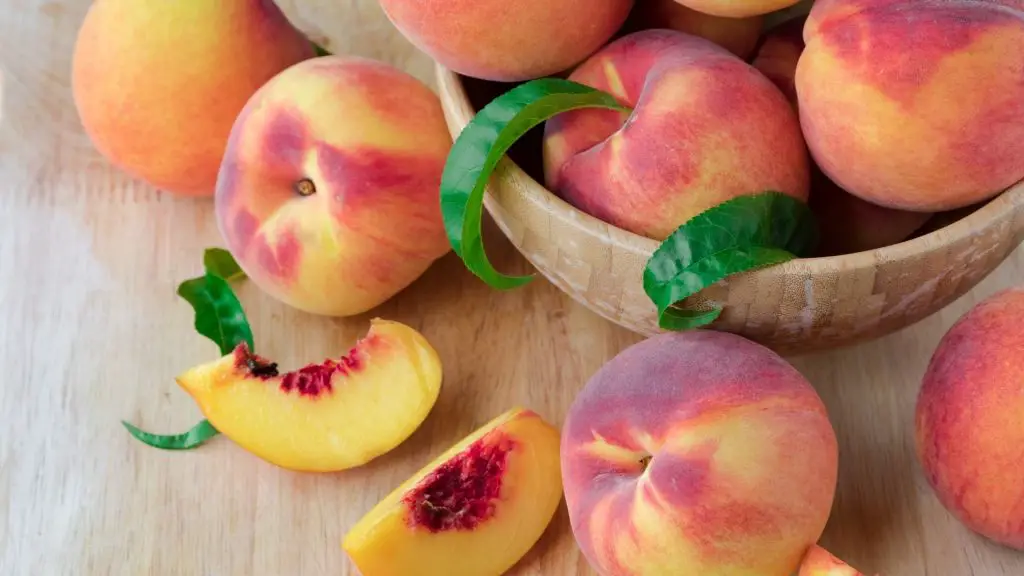
Per 100g of peaches, these are the nutrition facts:
- Calories: 39
- Total Fat: 0.3 g
- Potassium: 190 mg
- Dietary Fiber: 1.5 g
- Sugar: 8 g
- Protein: 0.9 g
- Vitamin A: 6%
- Vitamin C: 11%
- Calcium: 0%
- Iron: 1%
- Magnesium: 2%
Risks to Consider When Feeding Peaches to Guinea Pigs
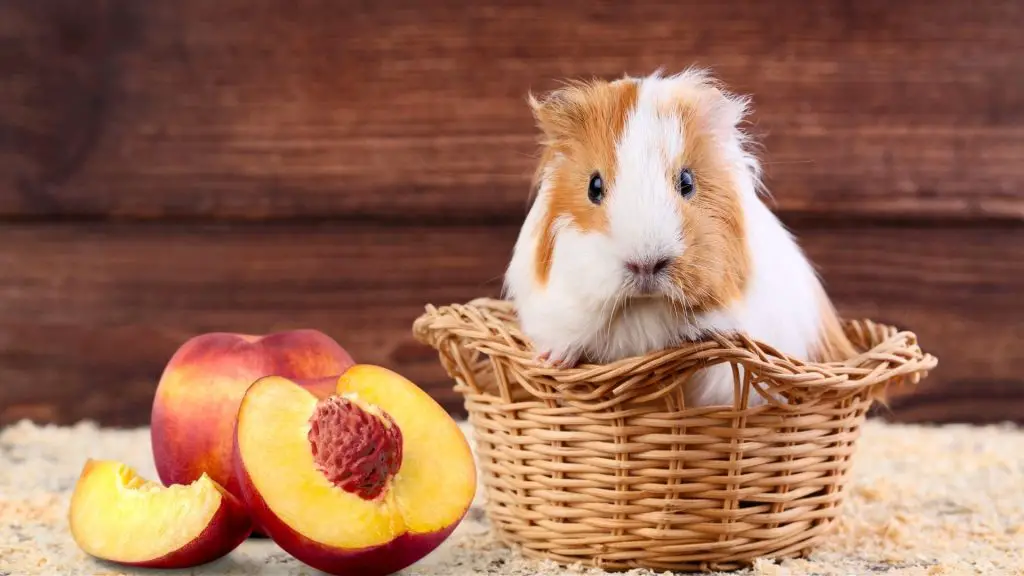
There are risks that you need to consider if you want to feed peaches to your guinea pig:
Diabetes
High sugar consumption can cause diabetes, which is one health risk to keep in mind. Sweet fruits contain high sugar levels, such as peaches, that can be detrimental to your guinea pigs’ health if consumed in excess.
Digestion Problems
Guinea pigs are very sensitive to sugar, and they have trouble digesting it, especially in large amounts. It can cause unbalanced intestinal bacteria issues and serious diarrhea.
Additionally, pesticides in fruit can also be a problem. To avoid this, wash the fruits thoroughly, or you can also peel them off when serving to your pet. Any bacteria that is on them can irritate your pet’s digestive system.
Serving Size and Frequency of Peaches for Guinea Pigs
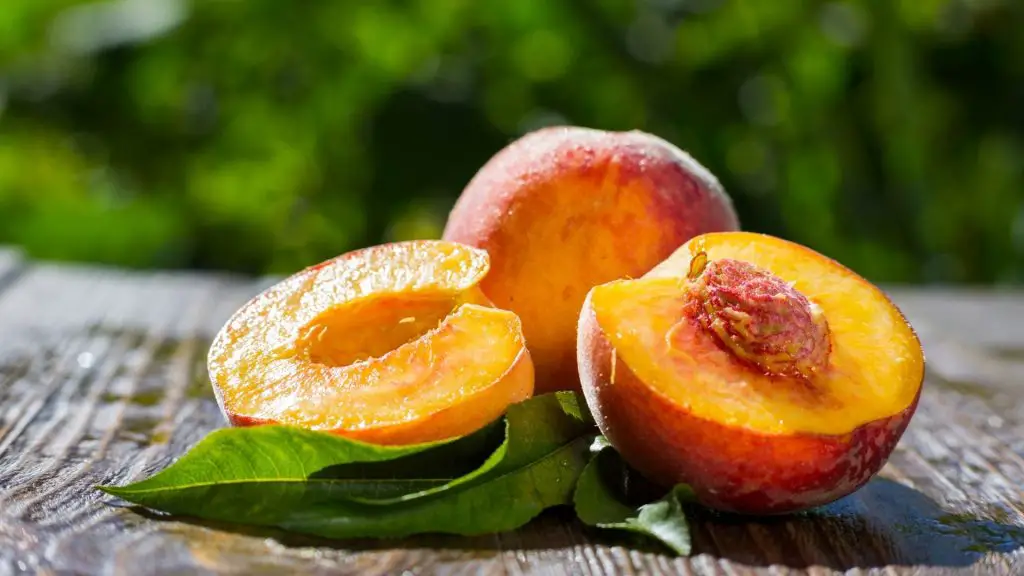
Only small serving sizes of peaches are allowed, preferably a teaspoon or two. You can feed them peaches at least two times a week.
Frequently Asked Questions
Can Guinea Pigs Eat Peach Skin?
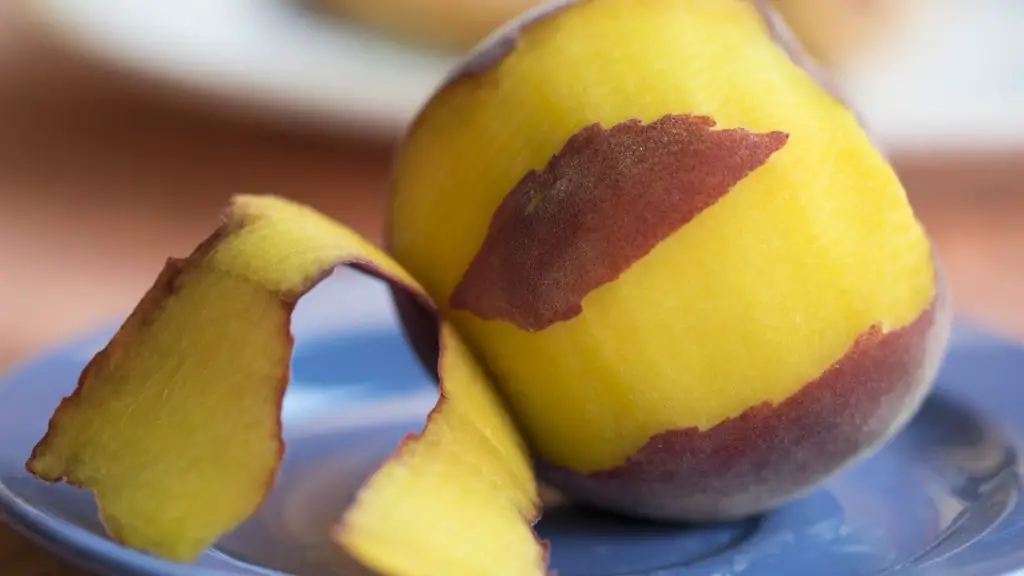
Guinea pigs can eat the skin of a peach. However, do not give them peaches with their skin on if you didn’t wash the peach properly – traces of pesticides could still be present on the peach’s skin and need to be washed away.
Can Guinea Pigs Eat Peach Seeds / Peach Pits?
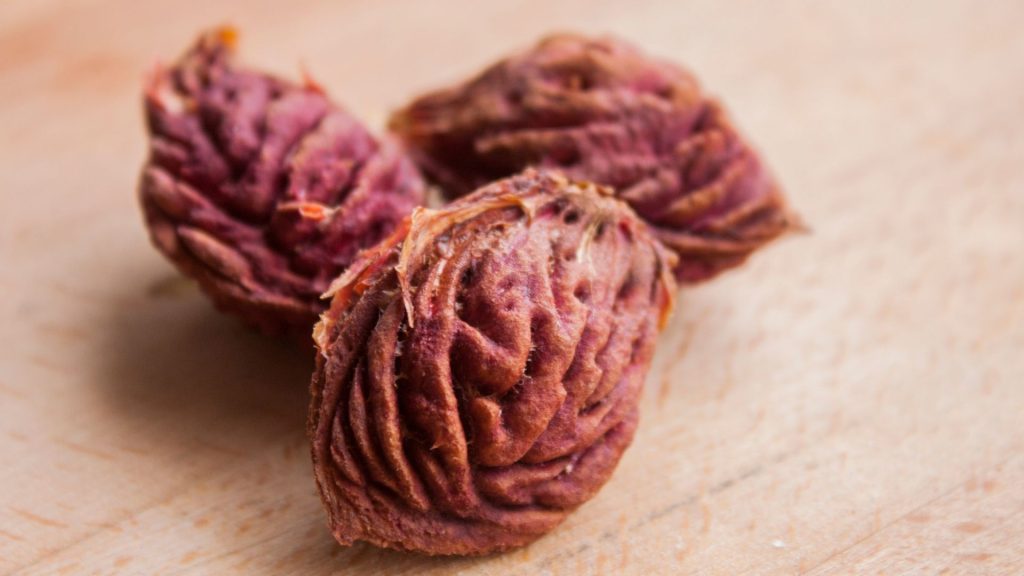
You cannot feed your guinea pigs with peach seeds. Aside from being a choking hazard for your pet, peach seeds are toxic as it contains an amygdalin compound that turns into hydrocyanic acid when consumed.
Can Guinea Pigs Eat Peach Stem and Peach Leaves?
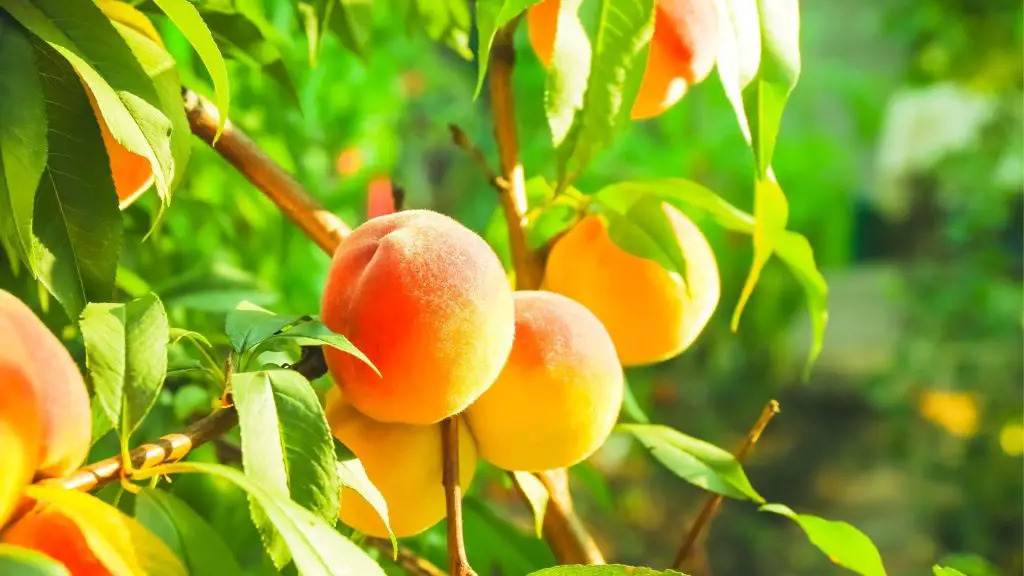
Just like peach seeds, peach stems and leaves cannot be fed to your guinea pigs. They are all toxic to guinea pigs and also to humans, as it also contains a chemical compound called amygdalin. When ingested, it can cause symptoms and can be fatal.
Quick Facts On Peaches
- Georgia is known as “The Peach State.”
- Peaches are in stores from June until August.
- They have high levels of vitamin A and C.
- A normal peach has less than 70 calories, and it contains around 3 grams of fiber.
- If you want your peaches to get ripe, leave them at room temperature. But if you don’t, just put the fruits in the fridge to keep them fresh.
- They look a lot like nectarines, but peaches are fuzzy, nectarines are smooth.
- When you buy this fruit, avoid any peaches with black spots or those that feel ripe.
- August is The National Peach Month.
Here is a video about some facts about peaches:
We have also made a full list of foods that guinea pigs can and can’t eat (150+ Types of Foods). Be sure to also check our recommended products page for everything you will ever need to assure a happy life for your guinea pigs. Hope this information was helpful and you have found the answer you were looking for.
List of Sources
Pick Peaches for Healthy Nutrients
Health Benefits of Peaches: A Delicious Summer Fruit
Harvest of the Month – Network for a Healthy California: Stone Fruits: Peaches – June
